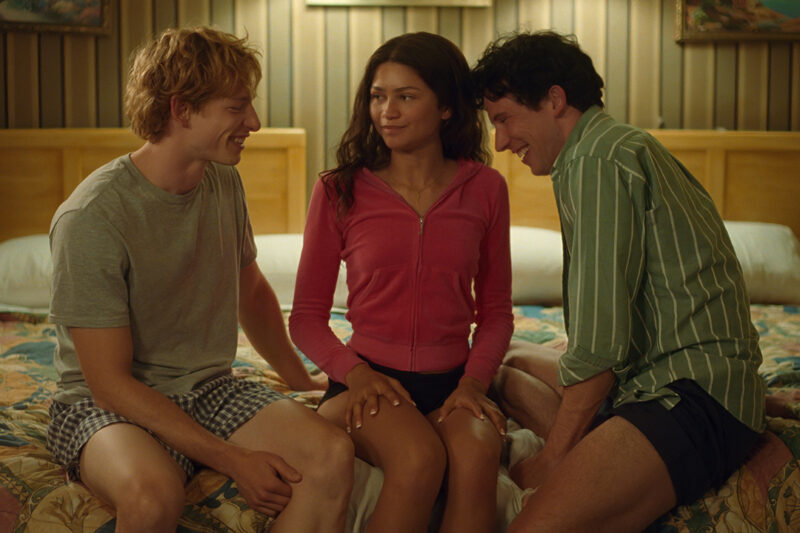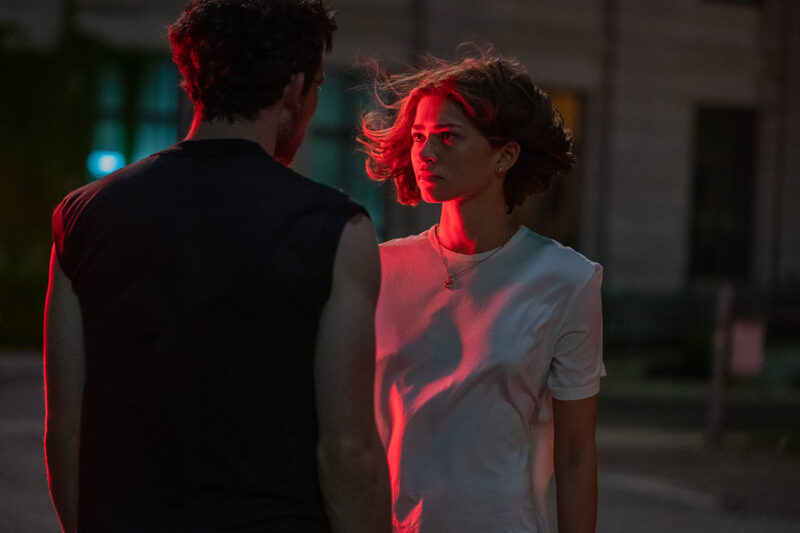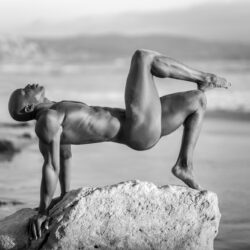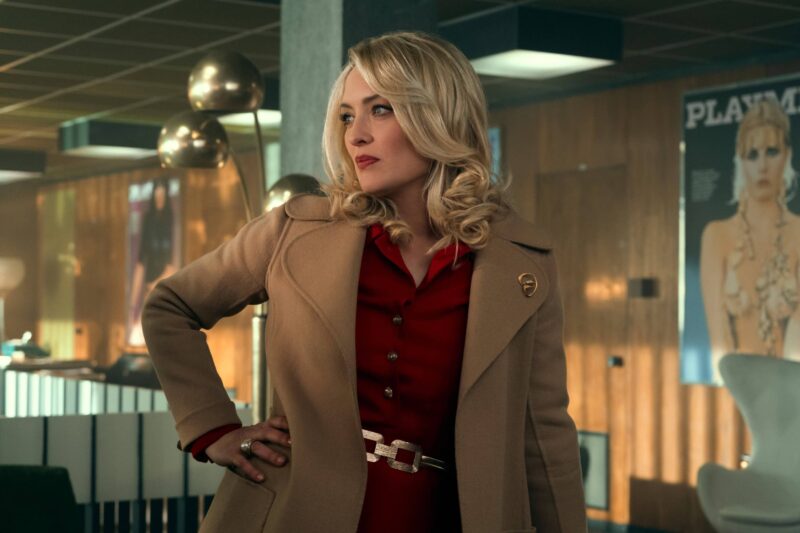Luca Guadagnino’s new film Challengers is an exercise in contradiction. It pulses with Gen-Z energy, but flirts with the sensibilities of Hollywood’s Golden Age. It’s pervading the zeitgeist as the horniest thing put to screen in recent memory yet contains no sex. Even the core plotline contradicts itself, putting the players of the central love story up for debate—is this movie about a failing marriage, a torrid affair, two queer men divided by denial and a strong-willed woman, or a potential throuple who refuse to communicate? More pressingly, do the details even matter, or does the logistical haze just add to the allure?
Guadagnino’s erotic sports drama follows the three young people in symmetrical pursuit of love, lust, and tennis superstardom. Zendaya’s hypnotic glamor shines as the ambitious and steely Tashi Duncan, a superstar on the rise whose potential is stolen from her by a severe knee injury. In her shadow are two men, lifelong best friends Art Donaldson (Mike Faist) and Patrick Zweig (Josh O’Connor) who rabidly vie for her attention and become pawns in Tashi’s calculated game of victors and losers. Rakish and charming Patrick is the first to earn her affections, winning her phone number by beating his friend in the junior singles final. But Art, the more reserved of the two, is the one who marries her and becomes her protegee. Told through a frenetic onslaught of time-jumps, their tangled stories unfold, culminating in a tense tennis match between the two men, now estranged, but still inexplicably linked to Tashi and each other.
Primarily, Challengers is a film about proxies, and not just Tashi’s obvious puppeteering of Art’s tennis career. A consistent throughline of intimacy by proxy underscores the movie: one man grabs the other’s thigh in awe while watching Tashi play for the first time, Tashi gets off with Patrick while talking about Art. This dizzying transference of erotic physicality muddies the waters of the film’s emotional grounding even further, but it amplifies the unbridled force of raw sexuality.

‘Challengers’ © Metro Goldwyn Meyer.
For a film with such an aesthetic fascination with the human form—after all, a significant majority of the 132-minute runtime is spent watching these people play tennis—Challengers is refreshingly passive in sexualizing the bodies on screen. The characters are athletes first and foremost, glistening like well-oiled machines, and any pleasure derived from watching them strain and sweat feels not like objectification of an individual and more like a nebulous fascination with full-throttle skill and exertion. The notable absence of on-screen sex doubles down on this physical depersonalization, especially in the wake of such unabashedly sex-forward films as 2023’s Saltburn and Poor Things. Yet, ironically, the covert approach to erotica only serves to intensify the horny overtone. In Emerald Fennell’s Saltburn, for example, the viewer feels decidedly removed from the sex acts on screen, precisely because of the specifics provided. What room is there for personal fantasy in the infamous bathwater-drinking or grave-fucking scenes, for instance? When “wanter” and “wanted” are so concretely defined, so too is the role of the audience: as mere spectators to inaccessible feelings and relationships.

‘Challengers’ © Metro Goldwyn Meyer.
Viewers may disagree on the film’s “endgame” coupling, but truly, it doesn’t matter who should or will end up together after the credits roll. The main character of Challengers is not Tashi, Art, or Patrick; it’s the force of desire itself: a desire so powerful and unbound it transcends the identity and physical body of any individual person. In the now iconic hotel room scene, there’s an evident escalation of desire from two parallel lines of uncomplicated attraction to a messy blur of uninhibited lust. The men begin by taking turns kissing Tashi—monogamy, interrupted. Then, they both kiss her at the same time—desire to the level of boundary dissolution. At last, Tashi herself becomes the spectator, removing herself from the entanglement and watching rapaciously as Art and Patrick turn their affections towards each other. This is the moment of her figurative climax, because she is watching the manifestation of desire for her grown too unruly for containment, now devouring any warm body in sight.
Therein lies Challengers’ greatest strength. With no consistent subjects and objects of lust, no obvious givers and receivers, the viewers are ourselves invited into the smothering embrace of desire. Guadagnino’s giddy directorial flourishes, which seem to come and go at random and with the enthusiasm of a kid in a candy shop, do land on occasion—like in an early scene at Tashi’s junior champion victory party, when a mismatched shot-counter-shot implies that the boys are watching themselves move amongst the crowd. It’s a subversion of the male-gaze-y lechery established just prior, promptly relieving Art and Patrick from the duty of active voyeurs; instead leaving that role vacant—for whom? Tashi, or us?

‘Challengers’ poster © Metro Goldwyn Meyer.






